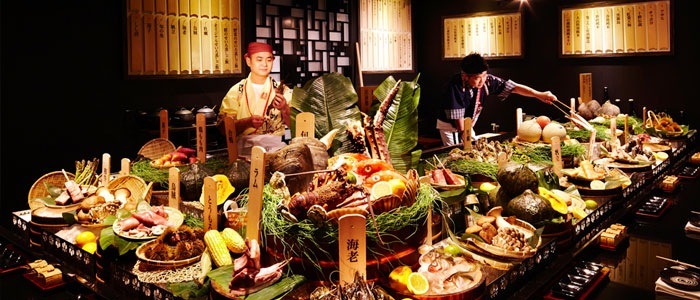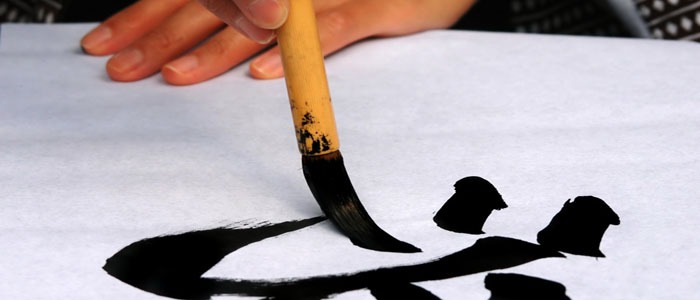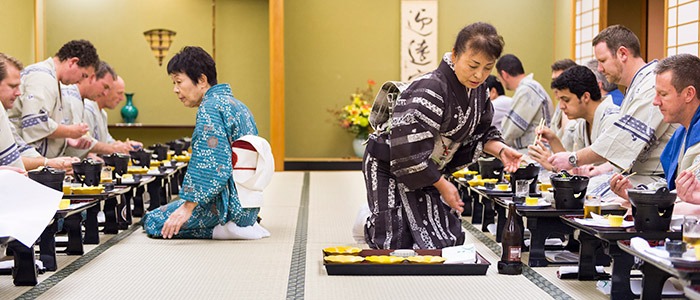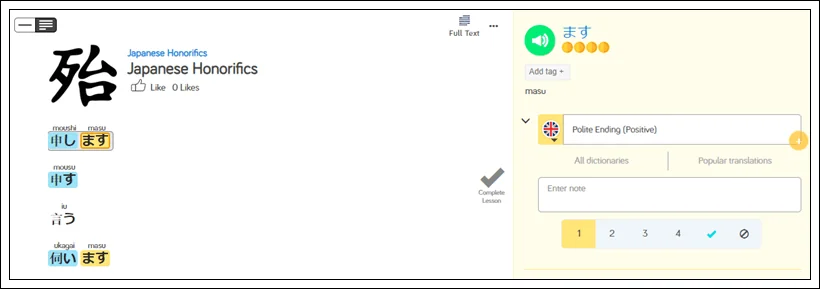Japanese Honorifics: How To Act Polite in Japan
Politeness can be a very big issue in Japan, and the Japanese language displays this. Japanese honorifics can be fairly complex and to fully go over the system is very much beyond the capabilities of this single article. It is recommended that you have a fair knowledge of Japanese grammar before delving too deeply into the Japanese honorific system, but I will still try to be somewhat “beginner-friendly” as I attempt to explain various important points concerning the honorific system.
The Japanese Honorific System
The Japanese honorific system can actually be divided into three subdivisions: formal language, humble language, and honorific language. Such polite language is useful for a variety of reasons, such as speaking to superiors or when someone is providing you a service (such as servers at restaurants, etc). There are some exceptions and changes that occur in these modes of speech, but I figure it is better to go over the general way how each subdivision works prior to going over the exceptions. There’s a fair bit of information to go through here, so let’s get started.

Formal Speech
Formal speech shows a sort of general politeness and refinement. This sort of speech makes frequent use of the -masu form of verbs. This is a common conjugation that makes use of verb stems in Japanese. To quickly go over it, Japanese verbs all end in -u. However, Japanese is technically more of a syllabrary than an alphabet, so while all verbs in -u, they don’t all end in う (u), but can end in a variety of kana, which all have the -u ending, like く (ku) or む (mu), etc. That last syllable/”letter” changes to the -i version. For instance, verbs that end in う (u) change to い (i), verbs that end in く (ku) change to き (ki), verbs that end in む (mu) change to み (mi),etc.
This stands true for most verbs. There is a group of verbs that end in る (ru) that, instead of changing to り (ri), simply drop the る (ru) to make the verb stem. This happens to some verbs that end with the sound of -iru or -eru, but not all. Verbs in this stem form can often become used as nouns, but we’re using them as verbs when we take these stems and simply add ます (masu) to them. For instance, 遊ぶ (asobu, play) becomes 遊びます (asobimasu, play (polite). This is the form you’d use of most verbs in formal speech. It is important to point out that a common exception to this is the very common する (suru, to do), which can make about any noun a verb. Take the verb 説明 (setsumei, explanation). Saying 説明する (setsumei suru) makes it mean “to do/to give an explanation”. It’s -masu form is します (shimasu). Remember this, as it will come back later.
There’s a bit more to speech than verbs, and for formal speech, we should probably also bring up です (desu). It’s the polite form of making a declaration. For instance, if I painted a picture and someone asked me what it was, I could say, “It’s a fish”. To say that politely in Japanese, I could say 魚です (sakana desu, declaring that something is a fish). Pretty simple right now, it will come back later.
With all that said, let’s quickly go over some conjugations. For the -masu form of a verb, the negative version changes from ます (masu) to ません (masen). So, 遊びます (asobimasu, play) becomes 遊びません (asobimasen, to not play). The past tense takes the ます (masu) and changes it to ました (mashita). 遊びました (asobimashita) means “did play”.

Common Exceptions in Formal Speech
The verb ある (aru, to be (inanimate objects)) becomes ござる (gozaru), the -masu form of which is special. It is ございます (gozaimasu). Remember how I said that we’d come back to です (desu), and that it was used in polite speech? Well, in formal speech, it too can be an exception as it can become でござる (de gozaru), but most will say でございます (de gozaimasu). The verb 食べる (taberu, eat) becomes いただく (itadaku, eat) or いただきます (itadakimasu, eat). The adjective 良い (ii or yoi, good or fine) becomes よろしいです (yoroshii desu, good or fine).
Humble Speech
The second subsection of honorific language we will be covering is humble speech. This sort of language is used to humble the actions of the speaker and show respect to the other(s) involved. The common way to conjugate verbs in this form is to take the stem form of the verb, add o- to front of it, and then add -suru to it. As we’re being polite, this often becomes the -masu form of する (suru, to do), which is します (shimasu), as we have already covered. For example, the humble form of 手伝う (tetsudau, help) is お手伝いする ((o-tetsudai suru) or お手伝いします (o-tetsudai shimasu). That is the common conjugation into the humble form, but there are many common exceptions to this rule.
Common Exceptions in Humble Speech
While the normal rule for conjugation is simple, wherein you add o- to the front and -suru/-shimasu to the end of the verb stem, there are various common expressions.
The verb する (suru, to do) becomes 致す (itasu) or 致します (itashimasu).
The verb 行く (iku, go) becomes 参る (mairu) or 参ります (mairimasu).
The verb 来る (kuru, come) also becomes 参る (mairu) or 参ります (mairimasu).
The verb 見る (miru, see) becomes 拝見する (haiken suru) or 拝見します (haiken shimasu).
The verb 聞く (kiku, hear or ask) becomes 伺う (ukagau) or 伺います (ukagaimasu).
The verb 言う (iu, say) becomes 申す (mousu) or 申します (moushimasu).
The verbs もらう (morau, to receive), 食べる (taberu, eat), and 飲む (nomu, drink) all become いただく (itadaku) or いただきます (itadakimasu).
The verb 知る (shiru, know) becomes 存じる (zonjiru) or 存じます (zonjimasu).
The verb いる (iru, to be (animate people/things) becomes おる (oru) or おります (orimasu).

Japanese Honorific Speech
Honorific speech is used to honor someone and show them a special amount of politeness. In this speech, it is common to have the prefix 御 (go or o or more rarely, mi) attached to certain nouns. Not all nouns take the prefix, and the various readings are usually not interchangeable. Experience can inform you of the reading required, but it is common to write it in kana, so reading it aloud isn’t as difficult as it may sound. For instance, 客 (kyaku, customer) becomes お客 (o-kyaku), which often is accompanied with the suffix さん (san) or 様 (sama), of which the latter gives the most honor. Note that many words just commonly use the prefix 御 (go or o or mi) in common speech, and still some just use it in other politeness levels in the honorific system in general, and this by itself doesn’t mean the speaker is using honorific speech.
In terms of verbs, there are few different forms of normal conjugation. One way is to add o- at the beginning and then add -ni naru at the end of the verb stem. So, 帰る (kaeru, go home) becomes お帰りになる (o-kaeri ni naru) or お帰りになります (o-kaeri ni narimasu). Another way is to add o- in front of the verb stem and then add -da or (more politely) -desu at the end. So, it would be お帰りだ (o-kaeri da) or お帰りです (o-kaeri desu). Still another way is to take the last consonant and change it from the -u form of it to the -a form of the last consonant, and then add -reru. So, it would be 帰られる (kaerareru) or 帰られます (kaeraremasu).
Exceptions in Honorific Speech
Like the other subsections within the honorific system, there are many common exceptions in honorific speech to the common conjugation forms. Some of these also have abnormal -masu forms, so be careful.
The verb する (suru, to do) becomes なさる (nasaru) or なさいます (nasaimasu).
The verb 行く (iku, go), the verb 来る (kuru, come), and the verb いる (iru, to be (animate beings)) all become いらっしゃる (irassharu) or いらっしゃいます (irasshaimasu), and they all also can become おいでになる (oide ni naru) or おいでになります (oide ni narimasu).
The verb 見る (miru, see) becomes ご覧になる (goran ni naru) or ご覧になります (goran ni narimasu).
The verb 言う (iu, talk) becomes おっしゃる (ossharu) or おっしゃいます (osshaimasu).
The verb くれる (kureru, give) becomes 下さる (kudasaru) or 下さいます (kudasaimasu).
The verbs 食べる (taberu, eat) and 飲む (nomu, drink) both become 召し上がる (meshiagaru) or 召し上がります (meshiagarimasu).
The verb 知る (shiru, know) becomes ご存知だ (gozonji da) or ご存知です (gozonji desu).

This should hopefully scratch the surface of the honorific system. Note that there are normal and more polite forms within these elevated systems of politeness (i.e., -da and -desu forms or normal and -masu forms) and that the rules of speaking within these forms of elevated politeness depend on how many speakers there are and who is speaking, etc.
Even though this sounds confusing, if you’re studying Japanese on a constant basis, you’ll start to recognize patterns and know when to say what (even if you don’t necessarily know the technical reasons why). On the opposite side of the spectrum, you may want to check out our post on Japanese slang to give your brain a bit of a break from all the politeness.
Using LingQ to Learn Japanese
Using LingQ is the best way to learn Japanese because it allows you to import content that you love. You can easily import any Japanese content you find online (or anime, dramas, songs, and so on) into LingQ and it will automatically create a brand new lesson for you. Highlight new words and add them to your vocabulary deck. You have an infinite amount of content to learn from. Good luck!

Also, LingQ is available on mobile. Take your lessons wherever you go and listen to your target language, read your transcripts, and create review flashcards. LingQ’s language learning apps are available for both Android and iOS.
***
Caiman Cotton is a freelance Japanese translator who has studied the language for years. He hopes to one day also study Latin.


